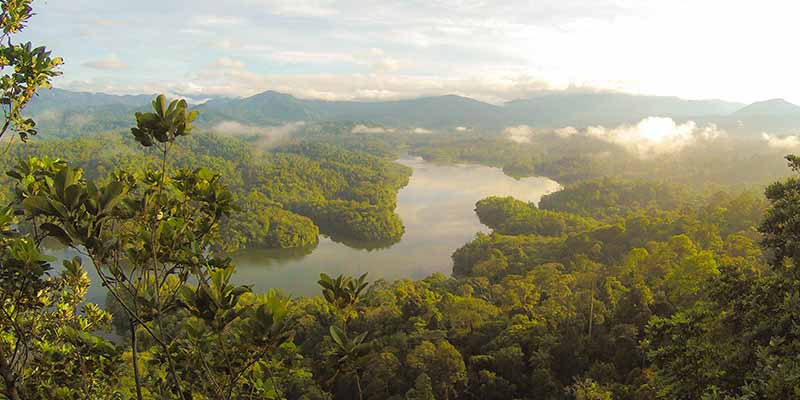
What does the Bible say about Heaven?
Adapted from an article first published in the Bridge Magazine, September 2019
What does the Bible say about Heaven?
For a lot of people, the word “Heaven” conjures up images of white-clad angels sitting around on clouds playing harps: an old-style Philadelphia cheese advert on steroids. But is that really what the Bible tells us awaits us beyond the grave? What does the Bible really say about life after death?
Let’s start with angels and clouds, an idea that owes less to Christianity than it does to a 2nd-century religious movement called Gnosticism. The Gnostics hated the body with all its longings and urges. For them, death was a beautiful release: freed from its body the soul could soar heavenward and float uncorrupted forever among the clouds with the angels, and presumably the Philadelphia…
So what does the Bible tell us about what happens when we die? Well, perhaps the most important thing it says, is that heaven is not the final destination for Christians after death! And here’s something else that might surprise you: the Bible doesn’t really talk very much about “going to Heaven when we die” at all.
Instead of “how to get to Heaven when we die” and that Gnostic ‘cloudy floaty’ idea of disembodied souls, Jesus and the early Christians taught that after death, we could look forward to full bodily resurrection. That’s why they called Jesus “the firstfruits” of the resurrection (1Cor.15:23) and “firstborn of the dead” (Revelation 1:4). They saw Jesus rise from the grave, and because they were “in him”, they too would rise from the grave. Just not immediately. That wouldn’t happen until Jesus returns in all his glory at the second coming.
So what happens to us if we die in the meantime? Where do we go if we die between death and the Jesus return? The best answer Jesus gives is in John 14:2, where he tells his disciples not to worry because he was going to prepare one of the many rooms in his Father’s house for them. And what’s really striking about that statement is that the Greek word he used for room (mone) is the word you’d use for a room in a Travelodge, a temporary stopping-off point on the journey to the final destination!
So what’s the ‘final destination’ for the Christian? The final three chapters of the Bible (Revelation 20-22) tells us three things will happen.
First, the resurrection. Jesus returns in his glory and everyone who has ever died is raised to life.
Second, Judgment. The resurrected come before God’s throne for judgement, a judgement we’ll all fail because of our deeds (our failure to love God and our neighbour).
Third, our final destination: either eternal separation from God (Hell), which is our destiny if we’ve rejected God’s offer of mercy made available through Jesus’ death on the cross, or, “the new earth.”
And this idea of a “new earth” is the focus of the end of the Bible’s story of what happens when we die. The new earth is where Christians spend their forever, and here’s how St John describes it:
Then I saw ‘a new heaven and a new earth,’ for the first heaven and the first earth had passed away…I saw the Holy City, the new Jerusalem, coming down out of heaven from God.” (Revelation 21:1)
The “first heaven and earth” he refers to is the world we know today, with all its brokenness, pain and suffering. And God promises that one day, all of that sadness and brokenness will be gone forever. And then something hard to comprehend happens: God will bring Heaven down to the new earth, and make his home among us.
Many years ago, St Augustine wrote of God,
You have made us for yourself, and our hearts are restless until they can find rest in you.”
Well when God makes his home among us, we’ll finally be truly satisfied in him, and as we experience him fully for the first time, he’ll wipe away every tear from our eyes, and
there will be no more death or mourning or crying or pain, for the old order of things has passed away.” (Revelation 21:4).
Then there’s a banquet – a royal wedding feast with the finest food and wine ever. And we’ll live in a beautiful city, with extensive parklands, rivers and trees, and God at the centre. The Prophet Isaiah (Is.65:21-25) speaks of us building homes for ourselves, planting vineyards and enjoying good food. There will be animals, and they’ll live in harmony with each other, and with people. If this is sounding a bit like the Garden of Eden, that’s the point: it’s God’s original creation but made new. And this time it will never break, but go on getting better and better, forever.
So that’s the Christian hope in the face of death: a real resurrected body, living forever on a renewed earth, a place of eternal peace and joy and life, that will remind us very much of this world, but without all the bad bits, because God will be at the very centre of everything. I wonder if you would like to be part of it?
If you’d like to talk more about any of the issues raised in this article (or any of my other big questions), please get in touch: barry@hopechurchfamily.org.
Further reading: Tom Wright, Surprised by Hope, SPCK, 2007